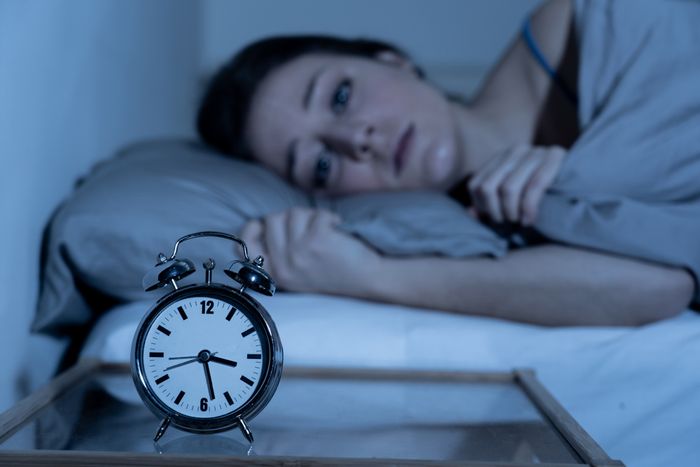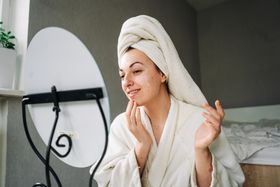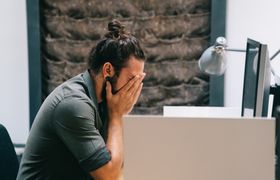Anxiety and Sleep Disturbances: Why Anxiety Feels Worse at Night
Published May 9, 2023.

Anxiety and sleep problems have long been connected—in fact, serious sleep disorders like insomnia have long been recognized as a common anxiety symptom (1). This is largely due to the fact that anxiety feels worse at night for many people. While some experience sleep disturbances because of their fear of nightmares, others may stay up late worrying about their problems while lying in bed.
No matter the cause of your nighttime anxiety, its prolonged effect on sleep is very likely to offset more serious sleep disturbances. To avoid bigger health problems, it's important to recognise the issue in time and take the right steps to resolve it.
» Losing sleep due to anxiety? Here's how to improve deep sleep and get rest
Why Is Anxiety Worse at Night?
During the day, we have lots of things to distract us from anxiety—seeking out positive experiences and even exercising can provoke an endorphin high that helps ward off anxious feelings. On the other hand, when we're alone in bed at the end of the day, it can be harder to turn off our anxious thoughts. This is when our fears and worries can come into sharp focus, making anxiety feel more extreme.
Nighttime anxiety also increases the release of the stress hormone cortisol, which makes us even more wakeful and raises the probability of insomnia. What's more, other conditions like nightmare disorder or Post-Traumatic Stress Disorder (PTSD) can also flare up when you go to sleep, making your anxiety feel worse at night than at daytime and causing sleep disturbances (2).
» Find out if lack of sleep is making you more anxious
How Does Anxiety Impact Sleep?
Your sleep can be impacted if you experience the following anxiety symptoms during bedtime:
- Fear and worry about the future
- Restlessness
- Increased heart rate
- Sweating
- Startling easily
These symptoms can affect your sleep in different ways, including causing difficulty falling asleep or waking you up in the middle of the night. Either way, not getting enough sleep as a result of these symptoms can lead to chronic sleep deprivation, which is associated with various serious health issues (3).
Coping With Nighttime Anxiety
To increase the possibility of good sleep when you have anxiety at night, try practicing these strategies:
- Breathing exercises
- Relaxation techniques
- Meditation
- Mindfulness
Whatever strategy you choose to cope with nighttime anxiety, make sure to have excellent sleep hygiene as well. This means you should create an optimal sleeping environment with a good temperature, pleasant smells, and comfortable bedding. In addition, try decreasing the use of electronics before bed and keeping a regular sleep schedule for the best results.
» Try these meditation techniques to improve deep sleep
Overcome Nighttime Anxiety for Better Sleep
Anxiety is often connected to chronic sleep deficiency precisely because it's usually more difficult to manage during the the night than at daytime. However, once you've recognised the problem, you can try out different coping strategies to try and soothe your nighttime anxiety and improve your sleep quality.
If you find these issues don't decrease by applying good sleep habits, make sure to seek professional help. Overcoming sleep deprivation needs to be a priority, as it can impact your overall health and play an important role in your anxiety problems in general.
» Find your ideal wellness routine







